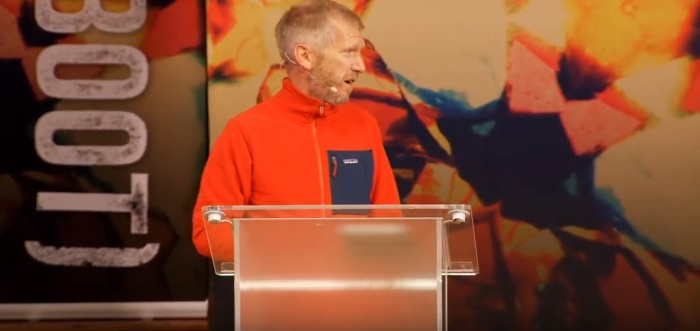Christian apologist answers 3 common questions Muslims have about Christianity

Christian apologist Andy Bannister says there are three questions he commonly receives from Muslims when preaching to the growing Islamic community in the U.K.
Bannister, the director of the Solas Centre for Public Christianity who holds a Ph.D. in Islamic studies, gave a speech at a Ravi Zacharias International Ministries event in London on Saturday.
At the event, known as Reboot, he laid out three questions that he's frequently asked when dialoguing with and debating Muslims, often while preaching in the public square.
The first question he addressed was “Hasn’t the Bible been corrupted and changed?” Bannister said that this question was grounded in the claim in Islam that the Bible was corrupted over time.
“The reason they raise this question in the first place is because when Muhammad, the founder of Islam, was preaching between 610 and 632 AD, what became Islam and what became the Quran, he claimed that his message, his new Quran, was identical to the Bible,” he explained.
“After Muhammad’s death in 632 AD, it wasn’t long before Islam was expanding out of Arabia, forming this great empire. And as it conquered, particularly former Christian countries, Muslim scholars came into contact with the Bible for the first time. … And when they read the Bible, they discovered a massive problem: the Bible and the Quran contradicted each other.”
According to Bannister, Muslim scholars long after Muhammad’s death began to argue that the Bible had been changed and altered, hence the differences.

Bannister countered that the Bible had not been corrupted, pointing to the many consistencies found between the various surviving manuscripts and fragments of the books of the Bible.
“We have thousands and thousands and thousands of ancient manuscripts or manuscript fragments of the Bible, many of them predating Islam,” Bannister said.
“You can go to the British library and there you can see one of the oldest complete New Testaments that we have. It’s called Codex Sinaiticus, it dates to about AD 350 … you can compare, if you’re a scholar, the text to what it says with the Bible we have today.”
The next question that Bannister said he's asked is, “Isn’t Muhammad mentioned in the Bible?” noting that some Muslim groups and individuals argue that certain verses in the Bible predict the coming of Muhammad.
For example, the website Islam 101 lists several verses in the Old and New Testaments that allegedly predict Muhammad, among them John 14:16 which reads, “And I will ask the Father, and he will give you another Counselor to be with you forever.”
Bannister rebutted the claim, pointing out that regarding the John verse, the verses before and after it speak of the Counselor being a Spirit and living inside His disciples.
“I say to my Muslim friends, when you read the things that Jesus says about this Counselor who will come, it makes much more sense to understand that as the New Testament does, to be talking about the day when the Church was born in Acts Chapter 2 when the Holy Spirit is poured out on the disciples,” Bannister added.
Finally, Bannister responded to the common question of “Why do Christians worship Jesus?,” by noting that many verses in the New Testament call for worshiping Jesus.
“Either Jesus was the most useless religious teacher in the whole of history — He didn’t want people to worship Him and He failed to communicate that to His disciples — or else, Jesus really did claim to be God and He did so directly in ways that His followers perfectly understood,” he said. “I think it’s the latter.”
Bannister’s remarks were part of Reboot, an event for adolescents that encourages attendees to interact with Christian apologists on questions surrounding a diverse array of topics.
“Reboot is designed for young people who have doubts about the Christian faith or who want to be more prepared to talk about God with their friends,” the website explains. We look at topics such as: ‘Why does God allow suffering?,’ ‘How can we know that God exists?’ And ‘Does science deny God?’ Among many other relevant topics today.”
In England, Scotland and Wales the Muslim population is around 3,372,966, according to the annual population survey compiled in 2017-2018 by the Office for National Statistics. The Guardian reported in 2015 that the Islamic population of England and Wales grew faster than the general population over a 10-year period, going from 1.55 million in 2001 to 2.71 million in 2011.




























